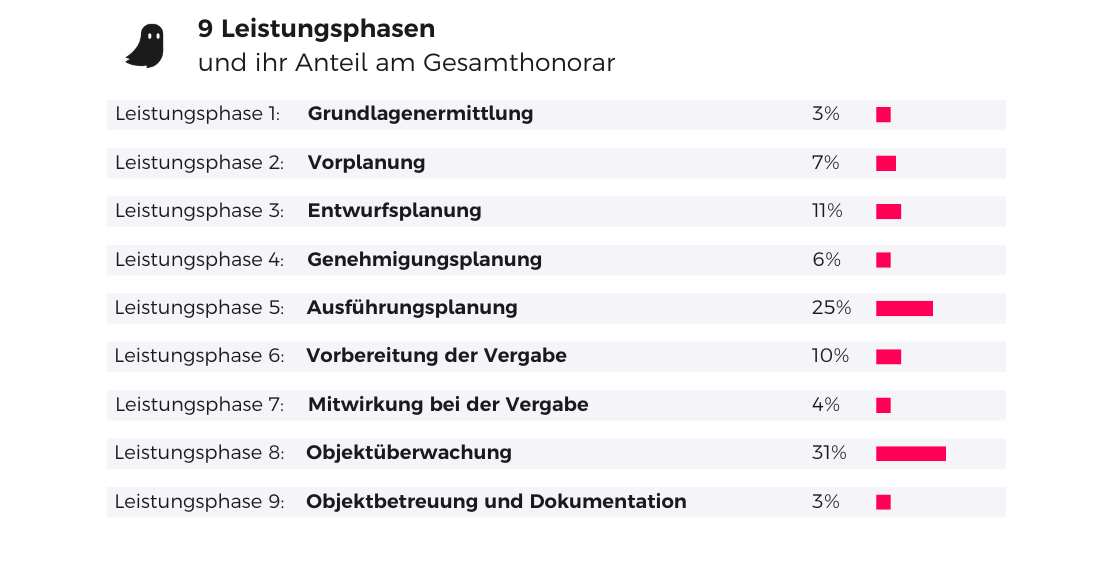HOAI service phases 1-9:
Everything you need to know
The HOAI, or Fee Structure for Architects and Engineers, is an important set of rules in Germany that sets the framework for the remuneration of architectural and engineering services.
Fee table per service phase for building construction:
Service phase 1 (basic design): 3%
Service phase 2 (preliminary planning): 7%
Service phase 3 (design planning): 11%
Service phase 4 (approval planning): 6%
Service phase 5 (implementation planning): 25%
Service phase 6 (preparation of award of contract): 10%
Service phase 7 (participation in the award of contract): 4%
Service phase 8 (project supervision and documentation): 31%
Service phase 9 (project management): 2%
Everything else important:
The HOAI, also known as the Fee Structure for Architects and Engineers, was mandatory for contracts until 2021, but has only been a guideline since 2021 due to an EU ruling.
In the HOAI, the federal government defined which fees are due for which services, as well as delimitations for special cases.
Special services are not directly specified in the HOAI, but there is a large list that covers many, but not all, services. This should generally be regarded as a guide.

